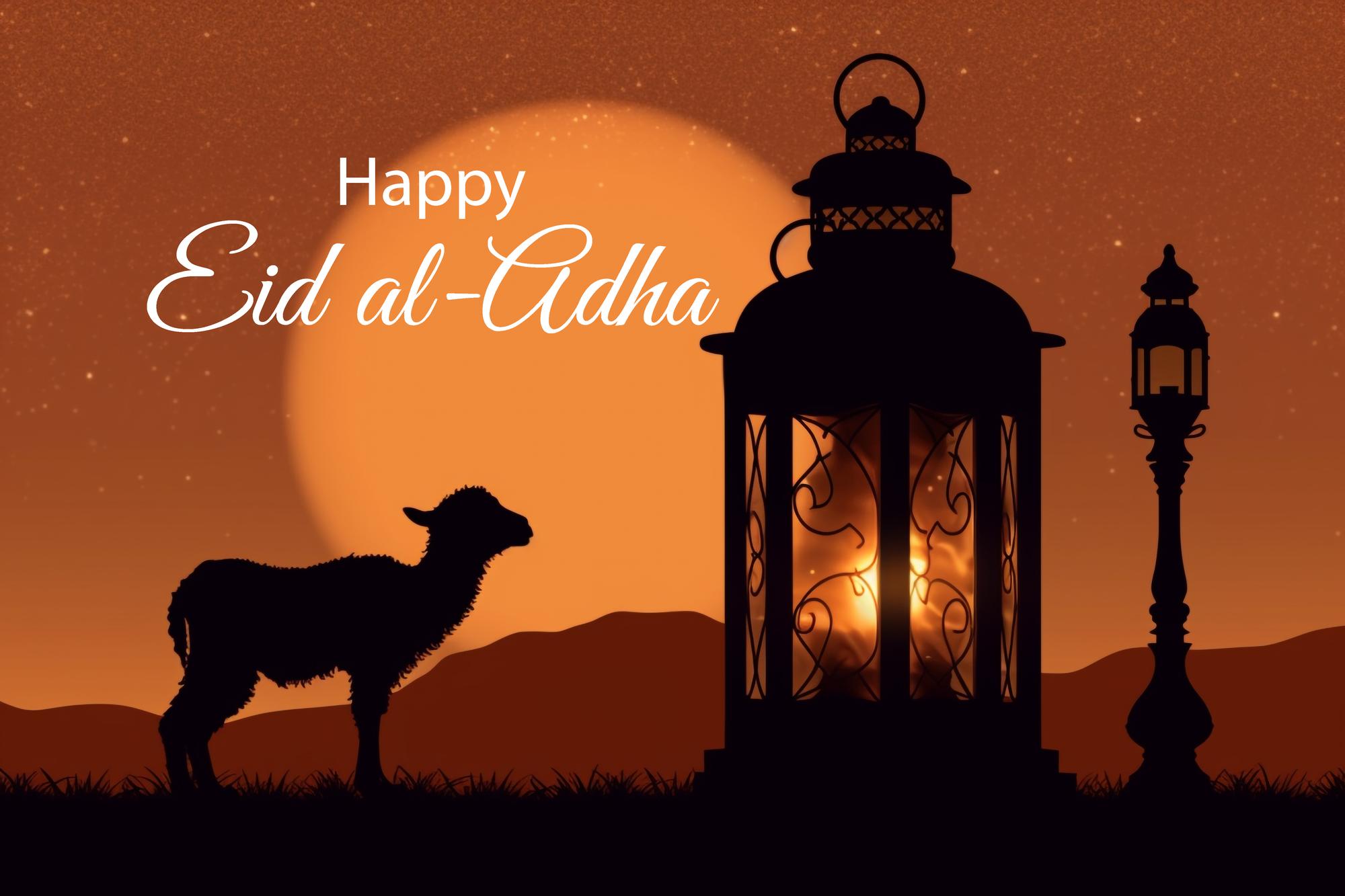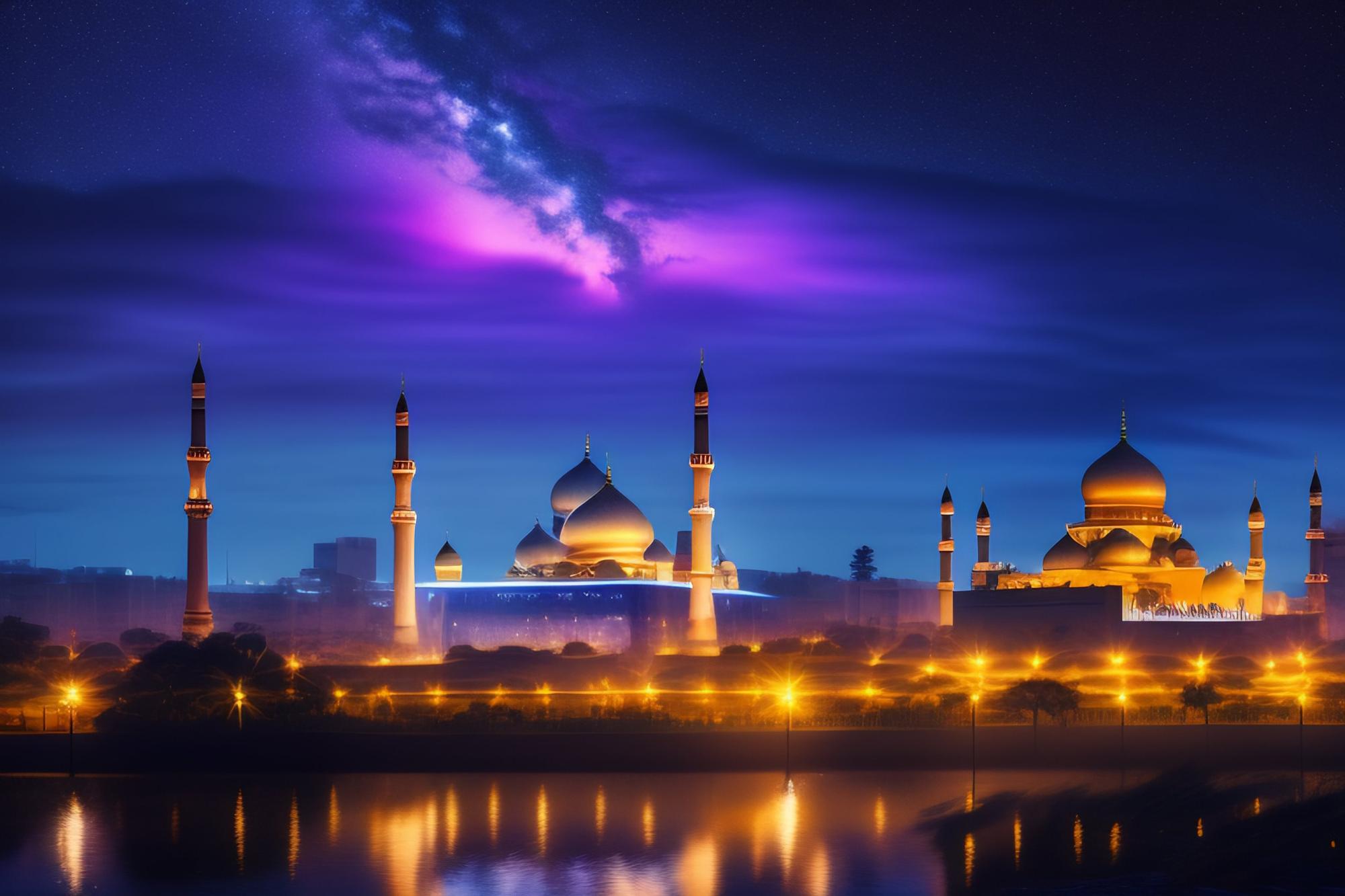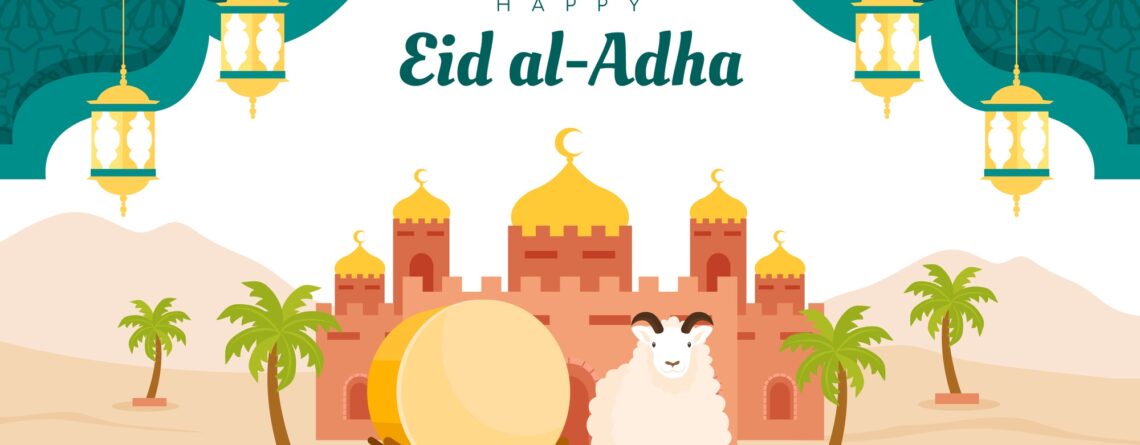Eid al-Adha: Meaning and Traditions
Nova Parker2024-04-21T12:55:07+00:00Eid al-Adha, also known as the Festival of Sacrifice, holds a profound significance in the Islamic calendar. This auspicious occasion commemorates the steadfast faith and obedience of Prophet Ibrahim (Abraham) and his willingness to sacrifice his son as an act of devotion to God. Beyond its historical roots, Eid al-Adha embodies deep spiritual values and enduring traditions that resonate within the Muslim community worldwide.
The Meaning of Eid al-Adha
At the core of Eid al-Adha lies the narrative of Prophet Ibrahim’s unwavering faith. According to Islamic teachings, Ibrahim received a divine command to sacrifice his beloved son, Isma’il (Ishmael). Despite the immense emotional and moral challenge, Ibrahim submitted wholeheartedly to God’s will. As he prepared to carry out the sacrifice, Allah, in His mercy, replaced Isma’il with a ram, signifying the acceptance of Ibrahim’s devotion and providing a valuable lesson in obedience and trust.
As Eid al-Adha approaches, it is a poignant reminder of the preceding holy month of Ramadan and the joyous culmination marked by Eid al-Fitr. Eid al-Fitr, celebrated at the end of Ramadan, signifies the breaking of the fast and the renewal of spiritual bonds among Muslims worldwide.

Eid al-Adha, therefore, symbolizes profound spiritual themes:
1.Submission to God’s Will: The story of Ibrahim exemplifies the concept of submission (Islam) to the divine decree, emphasizing the importance of trust and obedience in one’s faith journey.
2.Sacrifice and Selflessness: The act of sacrificing an animal during Eid al-Adha reflects the spirit of sacrifice and selflessness, reminding believers of the values of charity, compassion, and sharing blessings with others.
3.Unity and Community: Eid al-Adha brings together families, friends, and communities in prayer, feasting, and charitable acts, fostering a sense of unity and solidarity among Muslims globally.
Traditions and Celebrations
Eid al-Adha is marked by a series of cherished traditions and joyful celebrations:
1.Eid Prayers: The day begins with special Eid prayers held in mosques and open spaces, where Muslims gather to offer supplications and gratitude for blessings received.
2.Qurbani (Sacrifice): Central to Eid al-Adha is the ritual of Qurbani, where eligible Muslims sacrifice an animal, typically a goat, sheep, cow, or camel, in remembrance of Prophet Ibrahim’s sacrifice. The meat is divided into three parts: one for the family, one for relatives and friends, and one for the less fortunate, emphasizing the importance of sharing and generosity.
3.Feasting and Festivities: Eid al-Adha is a time of feasting and merriment, with families preparing delicious meals and sweets to share with loved ones. Traditional dishes vary across regions but often include lamb, biryani, kebabs, and sweet treats like baklava and maamoul.
4.Charitable Giving: Charity (Zakat) is a fundamental aspect of Eid al-Adha, as Muslims are encouraged to donate to those in need, ensuring that everyone can partake in the joy of the festival.

Eid al-Adha Around the World
The spirit of Eid al-Adha transcends borders and cultures, with diverse customs and practices enriching the celebrations:
In Saudi Arabia, the host country of Hajj, Eid al-Adha is a grand affair, marked by elaborate feasts, cultural performances, and communal prayers.
In Turkey, the festival is known as Kurban Bayramı, and families visit each other, exchange greetings, and distribute meat from the sacrificed animal to the less fortunate.
In South Asia, including Pakistan, India, and Bangladesh, Eid al-Adha is observed with prayers, feasts, and the sharing of meat among family, friends, and those in need.
Conclusion
Eid al-Adha embodies profound spiritual meanings of sacrifice, obedience, and compassion, uniting Muslims worldwide in a celebration of faith and community. Beyond its rituals and traditions, Eid al-Adha serves as a reminder of the enduring values that define Islam and the importance of generosity, kindness, and devotion in the lives of believers.
For those embarking on the sacred journey to Mecca for Hajj, you can book your flight and explore travel options through Yiata.com. Take the first step towards your pilgrimage and embark on a meaningful travel experience that aligns perfectly with your spiritual values and aspirations.
